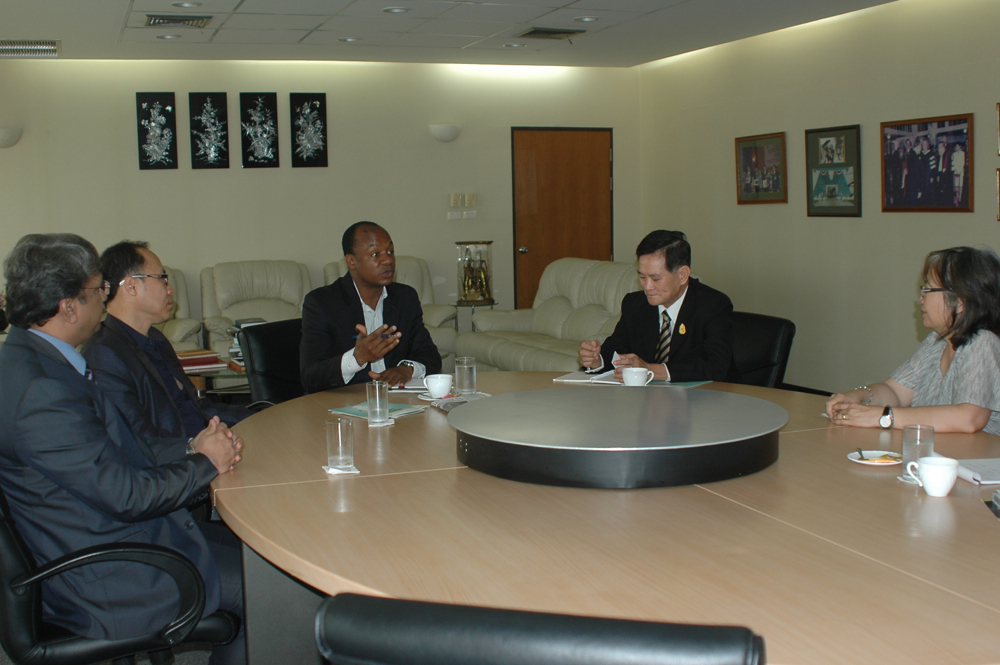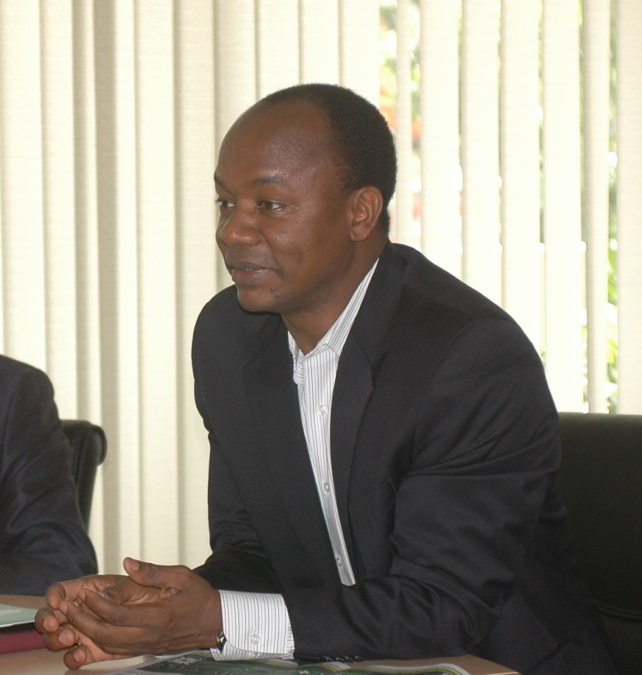Dr. Doulaye Kone, Senior Program Officer, BMGF, disclosed his idea
while meeting with Acting President Prof. Worsak Kanok-Nukulchai on the
front end of his two-day visit to AIT on 15-16 May 2013 titled
“Sustainable Decentralized Wastewater Management in Developing
Countries: Design, Operation and Monitoring.”
Meeting with AIT officials, he said he hoped to “take collaboration
with AIT to the next stage” to tackle one of the Foundation’s prime
sustainable development objectives: improving human sanitation services
in developing countries.
Dr. Kone visited to familiarize himself with the latest work of
BMGF-funded Naturally Acceptable and Technologically Sustainable
(NATS), a US$ 5-million AIT project spearheaded last year by Dr.
Thammarat Koottatep of Environmental Engineering and Management at
AIT’s School of Environment, Resources and Development, which aims to
“reinvent the toilet”, starting in Thailand, Cambodia and
Vietnam.
Thanking Dr. Kone, the acting president invited BMGF to be an “across
the board” partner of AIT, and extended an open invitation for the
Gates Foundation to establish a permanent office presence at AIT. He
also conveyed AIT’s strong desire to grant an honorary doctorate degree
to Mr. Bill Gates and Ms. Melinda Gates in the near future.
NATS applies a market-driven research approach to catalyze
commercialization of sustainable decentralized wastewater management
systems to radically improve sanitation for the urban poor in Asia. The
AIT-led effort is anchored in science and technology, and is strongly
supported by market evidence for development of products that impact
people’s lives for the better.
Dr. Kone held detailed discussions on results, marketing approaches and
future plans with project staff, field practitioners and scientists
involved with the project’s innovative Decentralized Wastewater
Treatment Systems (DEWATS) technology. He later made field visits in
Bangkok, and visited NATS’ partners in the Bangkok area, such as
researchers at Thammasat University.
According to Dr. Kone, BMGF’s aim for this project is to challenge the
Asian research community to come up with new ideas for tackling the
poor sanitation situation in developing countries. “BMGF wants to link
up with other R&D organizations in the region, and we have been
discussing the idea of AIT as a regional hub,” he told AIT officials.
“There is a lot of knowledge imbedded at AIT, and it has a good
structure for disseminating and promoting the application of
appropriate sanitation technologies,” he added.
The meeting on May 15 was also attended by Prof. Kanchana Kanchanasut,
Vice President for Research and Prof. Siddharth Jabade, Intellectual
Property Specialist, AIT Consulting, and Dr. Thammarat Koottatep.

From left: Prof. Siddharth
Jabade, Dr. Thammarat Koottatep. Dr. Doulaye Kone, Prof.
Worsak Kanok-Nukulchai, and Prof. Kanchana
Kanchanasut.

